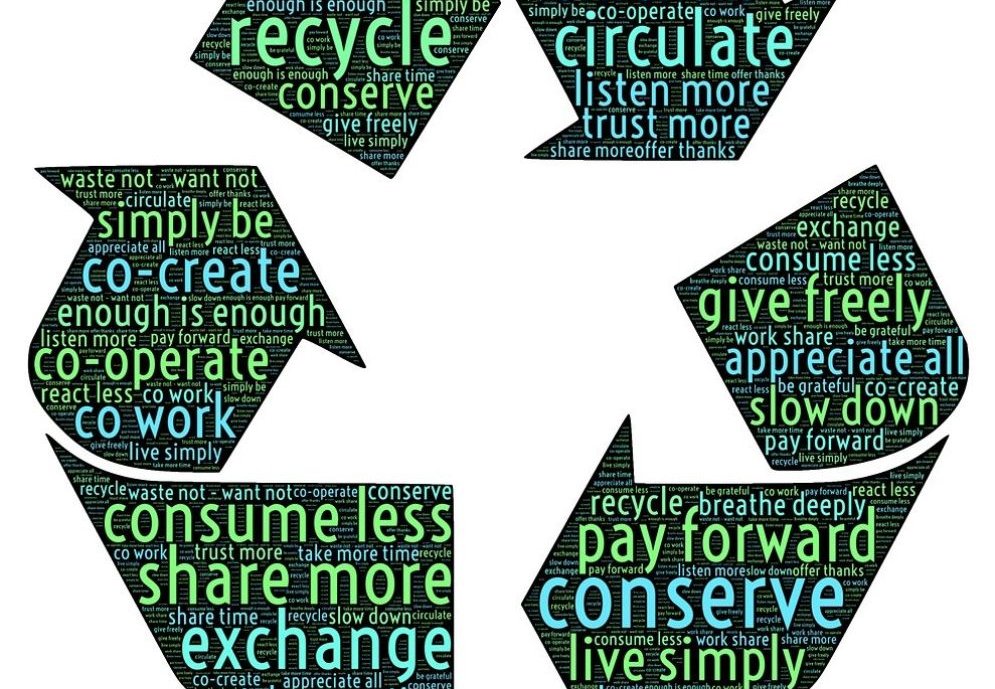

Circular economy and metal waste from the kitchen
Discover more about the circular economy, and also extend reducing plastic waste to waste metals in the kitchen.
Učni rezultati
The circular economy is a model that is based on the maximum use of available resources by recycling, reusing and extending the life cycle of products. This includes minimising waste and moving towards sustainable practices.
Food waste is a global issue with economic, environmental and social implications. The circular economy enables food waste reduction and promotion of sustainability. The implementation of circular economy principles to cooking-related metal waste has the potential to reduce pressure on natural resources and optimise the use of materials. Metal waste is common in the kitchen as many food products are contained in them.
The aim is for the sustainable preservation of resources for future generations. This can be done by reusing metal waste in the kitchen or in our everyday life, thereby reducing environmental pollution and waste.
Age group: 14-19 years old
Learning outcome:
- be aware of the problem of metal waste;
- learn how to reuse metal cans as useful cookware and for other purposes;
- apply the principles of the circular economy in the kitchen to protect the environment and also to promote more responsible consumer behavior to students;
- reuse metal cans after cooking at school - this can be a great way to recycle and be creative.

Zahtevan čas
- 2 hours for the main practical education;
- Various activities can also be connected with the topic (editing and presentation, poster making, etc.)
Orodja ali oprema
- Teacher’s presentation about the circular economy and metal waste in cooking - how to reuse them;
- Students will learn how to safely recycle metal cans;
- Sustainable development will be emphasised;
- Integration with other sustainable practices;
- Examples from initiatives.
Opis aktivnosti
Indoor lesson: The teacher introduces students to the problem of metal waste in cooking and kitchen facilities in the context of the circular economy. By using a presentation, educational videos and other resourses, students will understand the main point of circular economy. The problem of waste and the importance of reusing metal cans in the kitchen will be discussed. Students will find that incorporating a circular economy into cooking processes is a key step towards reducing metal waste and preserving resources for future generations.
Circular economy - presentation
Practical lessons:
- Safety when working with metal cans and boxes in the kitchen (cleaning and disinfection). It is important that metal cans and boxes are thoroughly washed and dried before reusing them to avoid food residue and odours.
- Other applications for waste products: cans and baking tins (mini loaves, cupcakes); steam or storage containers; decorative elements in the kitchen; the metal cans and boxes can be reused to store products like flour, sugar or spices; mini pots can be made out of metal jugs for plants and spices in the schoolyard; using the can as a cupcake baking dish in a cooking class; classroom organisers - pencil cases and brush settings; boxes for paper clips, erasers or other small tools;
- Make a poster summarising the results of all projects and activities.
- Students are told to research the amount of metal and plastic waste used in the kitchen and to find how much of them can be reused for other purposes for a month. Also they will work in groups and suggest different applications for reusing metal cans. The purpose of the assigned task is to develop ecological thinking through projects for the reuse of metal waste.
Namigi kako uvesti temo v šolski kurikul
- Nature sciences: environmental protection and sustainability, consumer education.
- Economic sciences: circular economу, increase in demand for raw materials and resources, the application of circular economy principles to cooking-related metal waste to optimise material use and reduce costs; the economic impact - reducing the cost of new materials by reusing old ones.
- Citizenship: student responsibility for sustainable use and reuse of resources; еncouraging initiatives to collect and reuse metal waste in school and at home; surveys and posters etc.
Useful links:
Towards a sustainable consumer model: The case study of Bulgarian recyclers
